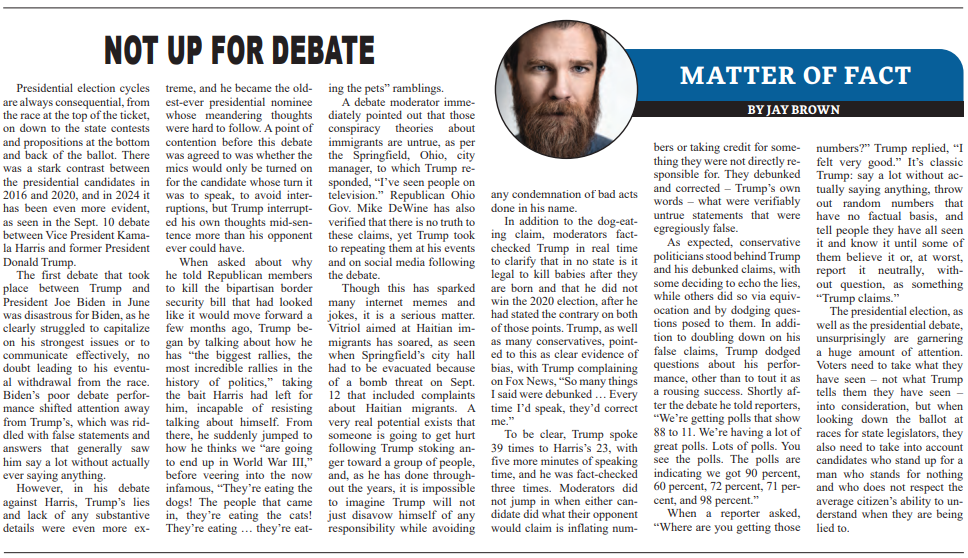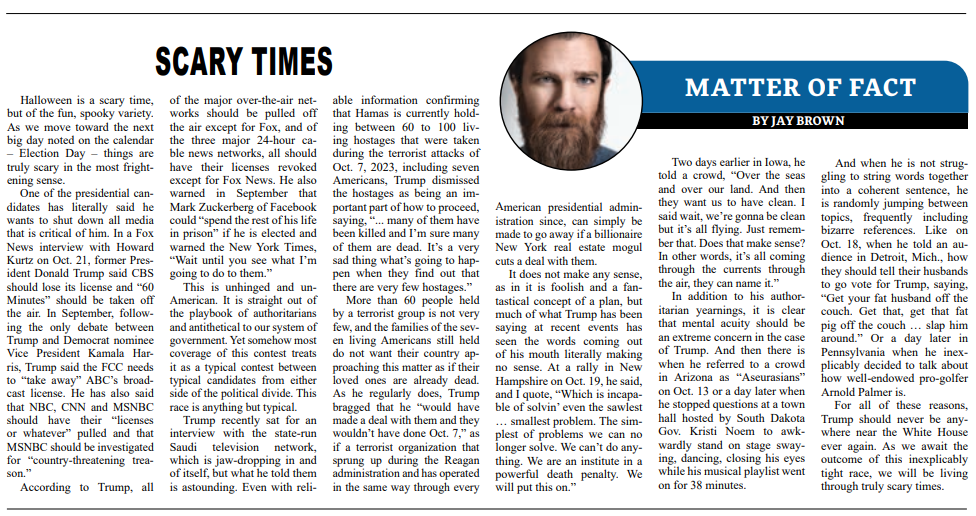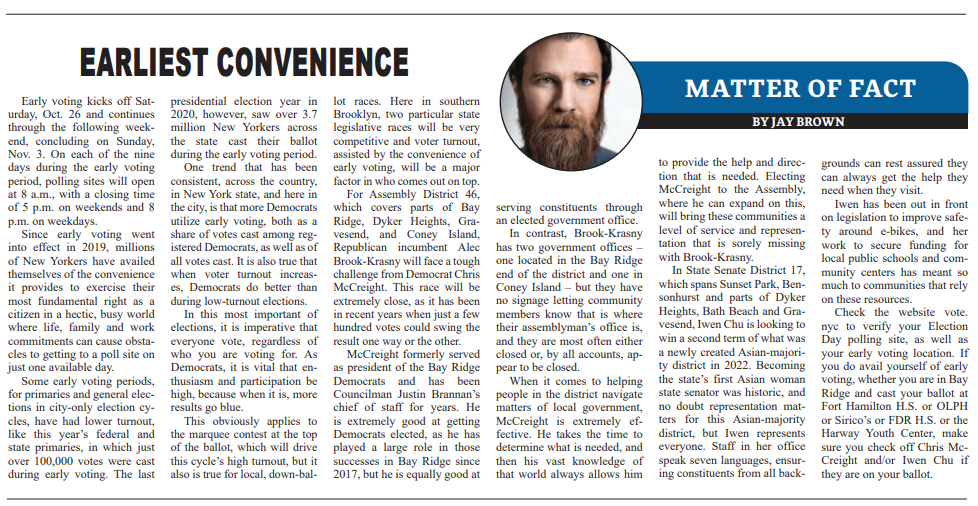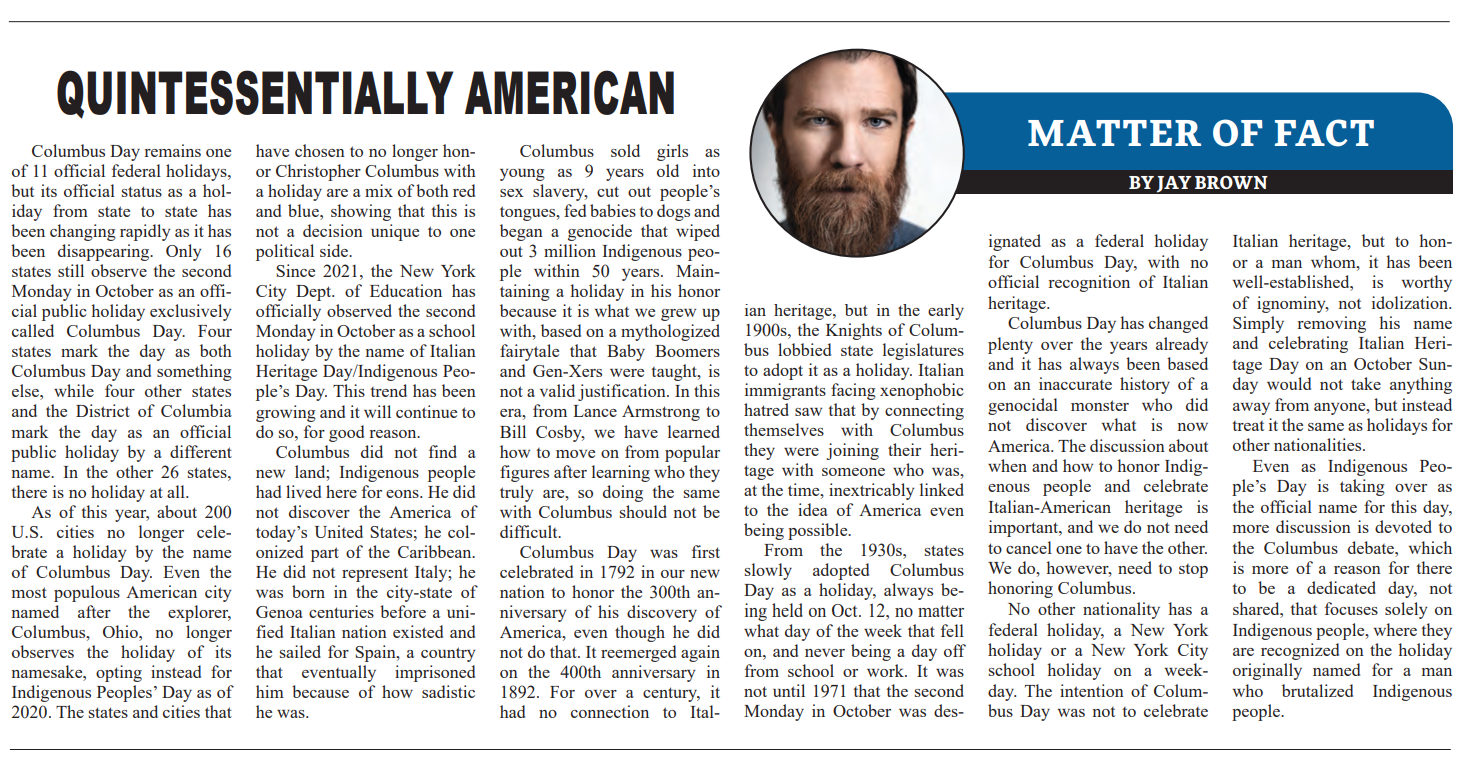This column, from the weekly opinion piece MATTER OF FACT, first appeared on BrooklynReporter.com, the Home Reporter and Spectator dated September 20, 2024
Presidential election cycles are always consequential, from the race at the top of the ticket, on down to the state contests and propositions at the bottom and back of the ballot. There was a stark contrast between the presidential candidates in 2016 and 2020, and in 2024, it has been even more evident, as seen in the debate between Kamala Harris and Donald Trump on September 10.
The first debate that took place between Trump and President Biden in June was disastrous for Biden, as he clearly struggled to capitalize on his strongest issues or to communicate effectively, no doubt leading to his eventual withdrawal from the race. Biden’s poor debate performance shifted attention away from Trump’s, which was riddled with false statements and answers that generally saw him say a lot without actually ever saying anything.
However, in his debate against Harris, Trump’s lies and lack of any substantive details were even more extreme, and he became the oldest-ever presidential nominee whose meandering thoughts were hard to follow. A point of contention before this debate was agreed to was whether the mics would only be turned on for the candidate whose turn it was to speak, to avoid interruptions, but Trump interrupted his own thoughts mid-sentence more than his opponent ever would have.
When asked about why he told Republican members to kill the bi-partisan border security bill that had looked like it would move forward a few months ago, Trump began by talking about how he has “the biggest rallies, the most incredible rallies in the history of politics,” taking the bait Harris had left for him, incapable of resisting talking about himself. From there, he suddenly jumped to how he thinks we “are going to end up in world war three,” before veering into the now infamous, “They’re eating the dawgs! The people that came in, they’re eating the cats! They’re eating… they’re eating the pets” ramblings.
A debate moderator immediately pointed out that those conspiracy theories about immigrants are untrue, as per the Springfield, OH city manager, to which Trump responded, “I’ve seen people on television.” Ohio Republican Governor DeWine has also verified that there is no truth to these claims, yet Trump took to repeating them at his events and on social media following the debate.
Though this has sparked many internet memes and jokes, it is a serious matter. Vitriol aimed at Haitian immigrants has soared, as seen when Springfield city hall had to be evacuated because of a bomb threat on September 12 that included complaints about Haitian migrants. A very real potential exists that someone is going to get hurt following Trump stoking anger toward a group of people, and, as he has done throughout the years, it is impossible to imagine Trump will not just disavow himself of any responsibility while avoiding any condemnation of bad acts done in his name.
In addition to the dog-eating claim, moderators fact-checked Trump in real time to clarify that in no state is it legal to kill babies after they are born and that he did not win the 2020 election, after he had stated the contrary on both of those points. Trump, as well as many conservatives, pointed to this as clear evidence of bias, with Trump complaining on Fox News, “So many things I said were debunked… Every time I’d speak, they’d correct me.”
To be clear, Trump spoke 39 times to Harris’s 23, with five more minutes of speaking time, and he was fact-checked three times. Moderators did not jump in when either candidate did what their opponent would claim is inflating numbers or taking credit for something they were not directly responsible for. They debunked and corrected – Trump’s own words – what were verifiably untrue statements that were egregiously false.
As expected, conservative politicians stood behind Trump and his debunked claims, with some deciding to echo the lies, while others did so via equivocation and by dodging questions posed to them. In addition to doubling down on his false claims, Trump dodged questions about his performance, other than to tout it as a rousing success. Shortly after the debate he told reporters, “We’re getting polls that show 88 to 11. We’re having a lot of great polls. Lots of polls. You see the polls. The polls are indicating we got 90 percent, 60 percent, 72 percent, 71 percent, and 98 percent.
When a reporter asked, “Where are you getting those numbers,” he replied, “I felt very good.” It’s classic Trump: say a lot without actually saying anything, throw out random numbers that have no factual basis, and tell people they have all seen it and know it until some of them believe it or, at worst, report it neutrally, without question, as something “Trump claims.”
The presidential election, as well as the presidential debate, unsurprisingly are garnering a huge amount of attention. Voters need to take what they have seen – not what Trump tells them they have seen – into consideration, but when looking down the ballot at races for state legislators, they also need to take into account candidates who stand up for a man who stands for nothing and who does not respect the average citizen’s ability to understand when they are being lied to.




